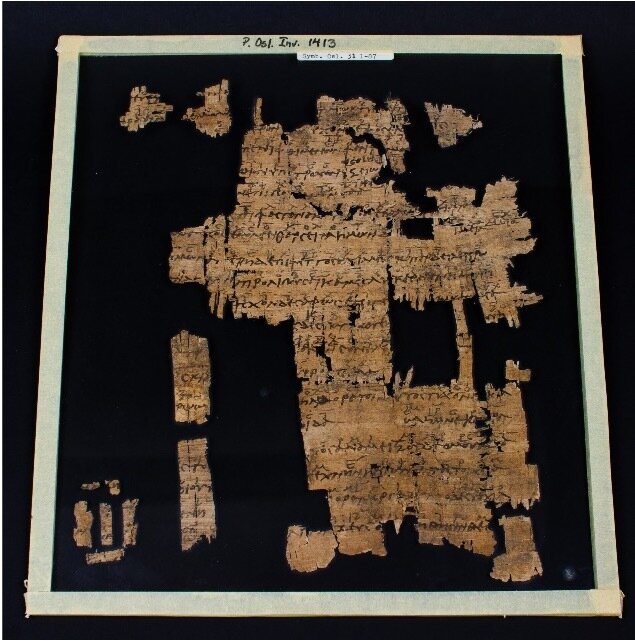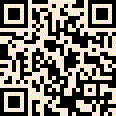BærUt!
Bærekraftige Digitale Vitenskapelig Utgaver
UB/SamDig
February 13, 2024
09:00 to 09:30
Annika Rockenberger
Background
IT for Research at the
University of Oslo
The Strategic Coordination Group for IT in Research (SK-ITF) coordinates and recommends measures within IT in research at the university and reports to the Research Committee.
Source: https://www-int.usit.uio.no/om/it-dir/strategi/masterplan/sk/sk-itf/
Hub/Nodes
-
Funded by UiO's Strategic Coordination Group for IT in Research as a Hub/Node network
-
Hub/Node organisation as a measure of implementing UiO's research infrastructure masterplan
-
Researchers, research support units, and central IT
Key information
-
Lead Annika Rockenberger (50%), specialist in textual scholarship and digital research methods in the Humanities and Social Sciences at UB
-
Digital Scholarship Center at the University Library supplies support staff & locations for workshops, training events, seminars, conferences; takes over activities after project end
-
Research Assistant(s) (50%)
-
Budget: 2.68 mio. kroner (salaries, events & conferences)
-
Project duration: 2024–2026
Partners
-
University of Oslo, mainly:
-
Faculty of Humanities,
-
Faculty of Theology,
-
Museum of Cultural History,
-
Museum of University History and History of Science
-
University Library
-
IT Department
-
HumIT at Faculty of Humanities
-
-
Oslo Metropolitan University
-
Norwegian School of Theology, Religion and Society
-
Munch Museum
-
Open for anyone, targeted towards researchers, software engineers and cultural heritage specialists
Why Do We Need BærUt?
Point of departure
Problem statement
Solution proposal
Humanities Data:
Multi-disciplinary, Multilingual,
Semi-structured,
Costly and Crucial
-
Humanities data is often text or text-like phenomena & often in semi-structured formats
-
There are standards for markup, coding, metadata, but they are not widely known and discipline-specific
-
A lot of resources are invested in creating DSEs
-
They are aimed to be used widely across academic, cultural heritage, educational and cultural institutions and society at large

Problem:
Retention and Sharing of Skills & Knowledge,
Technical & Philological Maintenance of DSEs
-
In Norway, there are no national or international solutions for long-term archiving of DSE data, systems and user interfaces, for data accessibility, for operation of systems
-
Cannot guarantee access to and reuse of humanities data after project end
-
Valuable and precious data in outdated, unusable or legacy systems with no one to host, maintain and further develop
-
Non-Norwegian/Scandinavian materials will not be systematically indexed, archived, or kept accessible by large cultural heritage institutions like National Libary or National Archives
Transdisciplinarity as a Solution
- Transfer & development of skills and knowledge between projects, disciplines, Departments and academic and cultural heritage organisations
- Transfer & development of skills between project-based, departmental, and central IT and developer groups

University Library as a Key Player
-
Expertise in long-term preservation, accessibility, and curation of cultural heritage material
-
Strong focus on data management and FAIR & CARE principles
-
Longer-term strategy
-
Permanent hires
-
System admins, developers and digital research methods experts
-
Researchers with humanities domain expertise
-
Digital Scholarship Center
-
Physical meeting place
-
Methods partners, training and teaching
Structure
Hub and Nodes
Hub
UB
-
Data modeling
-
Systems and architecture
-
DSE foundational skills
-
Feasibility study
-
Mapping DSEs in Norway
-
Preparing NFR Infrastructure application
Encoding: Relational and Graph Databases
Material Philology
Automatic Transcription
User
Interface
HumIT
Encoding:
XML
IT Dept.
Organisation
of the Hub
Roles and Tasks
Ambassadors
- Bring BærUt! into the Depts.
- Distribute communications
- Advertise the network to fellow researchers at their Depts.
- Assist with distributing the survey
- Inform the network about relevant developments at their Depts.
- Should be on-site
- Well connected at their Depts.
- Allocate 1-2hrs per month
Node Facilitators
- Domain experts for a specific node
- Contribute to resources to the node
- Hosting network meetings and skill-sharing sessions
- Suggest activities, invitations to guest speakers, etc.
- Relay wishes from the node to the Hub/coordinator
- Editorial Board for the blog?
- Monthly check-in meeting w/ coordinators
- 5-10hrs per month for hosting, activities, resource gathering, etc.
Network Members
- Anyone!
- You want to learn something? Join!
- You want to share something? Join!
- You want to teach something? Join!
- You want a sparring partner for a project? Join!
- You want to get feedback from peers? Join!
- You want to meet people who love dead languages and computers? Join?
- You want people to use your scholarly editions? Join!
- You need to do more productive procrastination? Join!
- You are unsure whether this is for you? Join!
We're here for you!
Hub
Task Group
Surveying DSEs at UiO and in Norway
- Annika Rockenberger (UB)
- Johanne Emilie Christensen (UB)
- Federico Aurora (UB)
- Andrea Dale Wefring (HumIT)
- Anders Nøklestad (HumIT)
- Kristian Salcedo (UB)
Scientific Board
Surveying DSEs at UiO and in Norway
- Hugo Lundhaug (UiO/TF)
- Jens Erlend Braarvig (UiO/IKOS/Filologisk Institutt)
- Ellen Wiger (NB)
- Katrine Frøkjær Baunvig (Uni Aarhus/Grundtvig Center)
- Martina Scholger (Uni Graz/ZIM)
- Gioele Barabucci (Uni Cologne/CCeH)
Task Group
Feasibility Study
- Members from
UB,
HumIT,
IT Department
Activities
Knowledge and Competence
Course offer
- Hands-on workshops
- XML
- X-technologies
- TEI, MEI
- relational databases
- graph databases
- automatic text recognition
- data modeling
- archiving
- minimal editing
- 5 Research seminars
- 2 Conferences
Events Spring Term 2024
11 March: Network Meeting
8-9 April: "404 not found" Approaches to Sustainable Editions
21 May: Shut Up & Survey
28 May: Shut Up & Survey
10 June: Automatic Text Recognition of Astrid Lindgren's Short Hand Manuscripts w/Raphaela Heil
11 June: Workshop w/Raphaela Heil
Conferences 2025 & 2026
2.5 day conference in April 2025
2.5 day "project end" conference in late November 2026
Deliverables
2024/25
-
Surveying digital scholarly editions (DSEs) at UiO - and in Norway
-
Feasibility study for the establishment of a DSE infrastructure at the University Library together with HumIT and IT Department
2025/26
-
Whitepaper "Recommendations for the Long-Term Archiving, Accessing, and Maintenance of Digital Scholarly Editions Created in Norwegian Academic and Cultural Heritage Institutions"
- Preparation of NRC-infrastructure application (2026)
Network
- UiO-network for researchers, developers and research support around DSEs
- linking relevant national, Nordic and international research networks around DSEs
- interdisciplinary, philological-technical, multilingual
Contact

baerut-admin@ub.uio.no
BærUt! Presentation for SamDig leader team
By Annika Rockenberger
BærUt! Presentation for SamDig leader team
Presentation of BærUt! Sustainable digital scientific editions. Skills hub and network at the University of Oslo, 2024-2026. For the Collection and Digital Services Dept. at the University of Oslo Library. Content authored by Annika Rockenberger. Design: Sofie Gilbert. CC-BY 4.0
- 72



